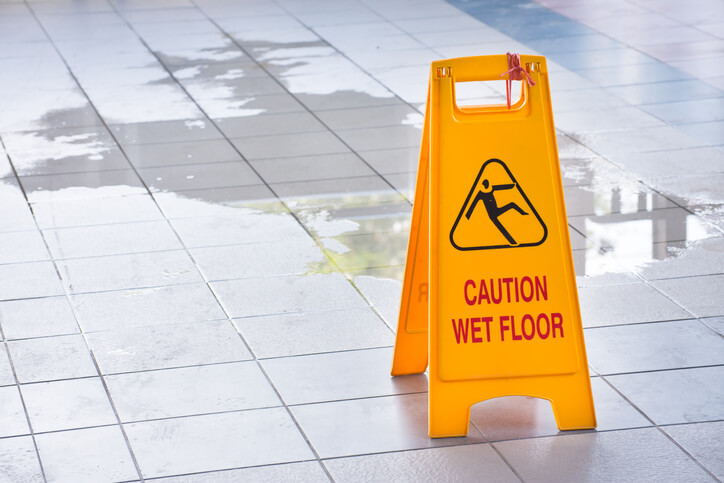If you slip or trip, and fall on someone else’s property (premises) due to the owner’s or tenant’s negligence, you can recover compensation for your injuries.
This compensation should cover your medical bills, lost wages, pain, suffering, and any other damages you may incur.
Curious about how you can prove liability in a slip and fall case? Here are a few of the things you need to know.
The Elements of Negligence
You need to prove four elements to show that a business or person acted negligently. These elements include:
Duty
The person or entity must owe you a duty of care. This means that you were someone who was on a property and the owner or tenant should have done something to prevent your accident.
Breach
The person or entity must do something — or fail to do something that they should have done — that violated the duty of care.
Damages
You must have suffered damage, such as an injury. If someone acts carelessly or negligently but you escape injury, you cannot seek compensation.
Causation
The breach must have caused your damages. Causation consists of the cause-in-fact and proximate cause of the harm you suffered.
Cause-in-fact means the breach was in the sequence of events that resulted in your injury.
Proximate cause means an injury was a foreseeable consequence of the breach. This does not require that the property owner or tenant foresaw your exact injuries. Instead, it means that the breach was the type of act or omission that could reasonably result in an injury.
Applying Negligence to a Slip and Fall Case
If you fall on someone else’s property, you can recover compensation if you prove the four elements of negligence. When applied to a slip and fall case, some ways you can prove liability include:
Duty
You must show that the person or business had control over the property. For example, a tenant might not owe you a duty of care to prevent you from slipping in the parking lot. Instead, that duty might fall on the landlord.
You must also show you were entitled to protection from hazards on the premises. If you were trespassing, the owner or occupier may not owe you a duty of care. Similarly, you may not be owed a duty of care if you ignored warning signs like “Employees Only” and entered a restricted area.
But if you were an “invitee” onto the property, the owner or occupier owes you a duty of care. Invitees include:
- Guests
- Customers
- Clients
For a public building or public sidewalk, invitees include any member of the public.
Breach
The owner or occupier must have done something to expose you to a risk of injury. This can include an act or an omission. Some examples of acts or omissions that could breach the duty of care include:
- Spilling something
- Failing to clean up or close off a spill
- Failing to post a warning sign
- Waiting too long to post a warning sign
A business can breach the duty of care if an employee or agent breaches the duty. For example, a shop breaches the duty of care if an employee ignores a customer’s warning that the stairs were slippery.
Damages
Anytime you get injured in an accident, you will probably sustain damages in the form of pain and suffering. You will also have some out-of-pocket expenses for co-pays or deductibles even if you have health insurance. You might miss work. You may have other non-economic damages.
Causation
In most cases, you can determine causation by asking whether the owner or tenant could have prevented your injury. Lawyers call this the “but for” test — but for the owner’s or tenant’s negligence, you would not have suffered an injury.
This test establishes liability even if your conduct partially contributed to your accident. If you bear some fault for your injuries, your damages might get reduced. But you can still seek compensation for the other party’s share of the fault.
Evidence to Support Your Slip and Fall Case
You can use witness statements, video or photos of the accident scene, and your recollections about the accident to support your case. You should discuss your case with the Kohan Law Group. Our attorneys know how to use depositions and discovery requests to get the evidence needed for your case.
To discuss your slip and fall case with a knowledgeable personal injury lawyer, contact Kohan Law Group for a free consultation.

